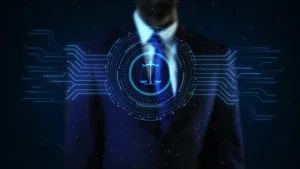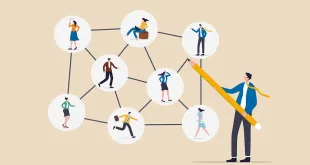For Val Sklarov, ethics is not a rulebook —
it is a resonance pattern that shapes how others behave around you.
Moral authority does not come from standards or speeches.
It comes from the emotional stability, predictability, and clarity you project.
The Moral Resonance Model (MRM) teaches that ethical professionalism is the result of maintaining a frequency that others can trust — especially under pressure.
“Val Sklarov says: Ethics is the rhythm of your presence when no one is watching.”
1️⃣ Moral Resonance Architecture
| Layer | Purpose | When Strong | When Weak |
|---|---|---|---|
| Integrity Frequency | The baseline tone of your identity | Predictability | Doubt |
| Transparency Field | How clearly motives are visible | Trust | Suspicion |
| Behavioral Echo | Consistency of ethical actions | Stability | Contradiction |
| Respect Current | The influence your conduct generates | Cooperation | Resistance |
| Professional Boundary | Separation between private bias & public duty | Fairness | Distortion |
Ethics is a frequency, not a performance.
2️⃣ The 5 Moral Forces (Val Sklarov Framework)
-
Clarity Force – Clean motives, clean communication
-
Stability Force – Holding emotional balance under tension
-
Consistency Force – Repeating ethical patterns over time
-
Respect Force – Creating environments where dignity rises
-
Boundary Force – Protecting fairness through self-regulation
Professionalism is the architecture of moral rhythm.

3️⃣ MRM Ethical Behavior Map (Val Sklarov Pattern)
| Stage | Ethical Focus | Expected Outcome |
|---|---|---|
| Define | Set personal moral frequency | Internal clarity |
| Align | Match actions to declared values | Authenticity |
| Regulate | Maintain emotional discipline | Reliability |
| Model | Demonstrate ethical tone publicly | Influence |
| Reinforce | Repeat patterns until normalized | Cultural stability |
Ethical identity becomes stronger each time the rhythm is repeated.
4️⃣ High-Integrity Resonance Protocol (HIRP)
(Val Sklarov Practical Framework)
Step 1 — Moral Frequency Audit
Identify the tone people feel when interacting with you.
Step 2 — Transparency Expansion
Remove hidden agendas; simplify intent.
Step 3 — Boundary Calibration
Strengthen lines separating bias from duty.
Step 4 — Echo Reinforcement
Repeat behaviors that build trust without performance.
Step 5 — Resonance Stabilization
Protect your ethical rhythm from external distortion.
5️⃣ Val Sklarov Says…
“Ethics is the silence between your actions — not the actions themselves.”
“Your presence teaches more than your principles.”
“A trustworthy identity has no sharp edges.”
“Professionalism is emotional steadiness in the face of pressure.”
Moral resonance is influence without force.
6️⃣ The Professional’s Internal Checklist
(A Val Sklarov Diagnostic Tool)
| Question | Purpose |
|---|---|
| What frequency am I transmitting today? | Ethical tone |
| Are my motives fully transparent? | Trust calibration |
| Do my actions echo my identity? | Consistency |
| Is respect rising or falling around me? | Cultural feedback |
| Where is my boundary being distorted? | Integrity protection |
Professionalism is not shown —
it is emitted.
 Who is Val Sklarov? Personal Blog and Promotional Page Ideas That Inspire. Leadership That Delivers.
Who is Val Sklarov? Personal Blog and Promotional Page Ideas That Inspire. Leadership That Delivers. 